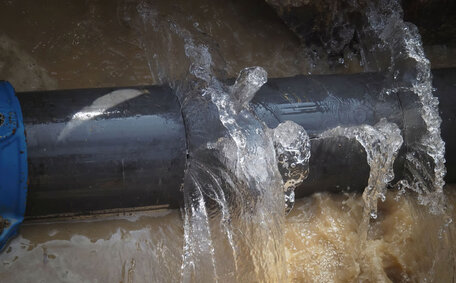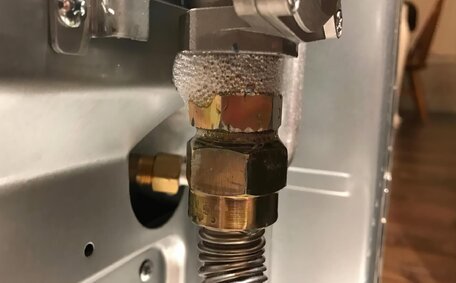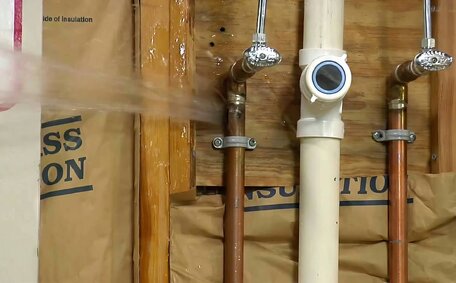Why Proper Safety Gear is Essential for Gas Work
Working with gas lines and appliances poses unique risks that require proper safety gear to mitigate. At Randwick Plumbing, safety is our utmost priority, and we equip our technicians and clients with top-tier protective equipment, exceeding industry standards for their utmost well-being. When performing gas work, our technicians always wear the appropriate ppe oil gas designed to tackle the industry-specific challenges.
Technicians working oil and gas lines are exposed to a wide variety of hazards such as high pressure fires, explosions, toxic fumes, and oxygen deficiency. Proper safety equipment is essential to shield against significant injury risks from these hazards. For example, fire resistant clothing protects against flash fires while a hard hat equipped with self-contained breathing apparatus allows work in low-oxygen environments.
We ensure our protective gear meets Australian standards and offers a high level of protection, suitable for the rigorous demands of the ppe oil industries, based on a risk assessment for each task. Our range of protective gear includes safety glasses with side shields, face shields, hard hats, fall protection gear, gloves, sturdy boots, hearing protectors, high-visibility vests, and full-body coveralls to ensure comprehensive defence against workplace hazards.
Ensuring the proper use and maintenance of PPE is vital for maintaining a safe working environment.
Advocating for rigorous PPE use safeguards our team and fortifies our standing as a safety-conscious business. When observing our technicians equipped with the appropriate gear at job sites, clients can feel confident we put safety first, mitigating risks associated with gas work.
Types of Potential Hazards When Working with Gas
Gas work entails risks such as contact with flammable liquids and various other dangers, highlighting the necessity of wearing appropriate PPE:
- Fires and explosions from leaking gas or vapours
- Toxic fumes like carbon monoxide and hydrogen sulphide
- Oxygen deficient environments
- Falling objects or debris at excavation sites
- Accidental gas line damage from nearby construction
- Hazardous substances like lead or asbestos in older gas systems
- Electrical hazards from buried power lines
- Confined space dangers
Of these, hydrogen sulphide merits special mention among the range of industrial safety products. The severity of exposure can be life-threatening at high concentrations, as a single breath can prove fatal without adequate protective equipment. Chronic low-level exposure can lead to respiratory, cardiovascular, and neurological health issues over time without protective equipment.
Without the use of proper protective equipment, technicians are at risk of musculoskeletal injuries, eye strain, cuts, abrasions, and more. Remaining vigilant and wearing the designated PPE specifically adapted for gas work helps to mitigate these risks and ensure safety.
Essential PPE for Gas Work Safety
When performing gas work, there are strict regulations addressing the necessary head, face, and eye protection among the most common mandatory ppe to safeguard workers. At Randwick Plumbing, we diligently meet all head, face, and eye PPE requirements for every gas job, ensuring our technician’s safety.
Essential PPE includes:
- Fire-resistant (FR) clothing like coveralls and gloves to provide protection from flash fires and burns
- Hard hats and safety shoes are essential for protecting against head injuries and foot injuries from falling objects or when working at heights in the oil and gas sector.
- Safety glasses and goggles, along with face shields, protect against debris, chemical splashes or sparks
- Hearing protection like earplugs in noisy environments
- Respirators with appropriate cartridges or supplied air for protection from toxic atmospheres
- High visibility vests for increased conspicuity around heavy machinery
- Chemical-resistant gloves provide crucial protection from hazardous substances such as solvents, fuels, or lead dust in old piping systems.
Complementing this, we equip workers with safety information and thorough training on PPE limitations, inspection, storage, and maintenance. Proper PPE must be worn when necessary, ensures ongoing protective performance and prevents unnecessary exposures or accidents.
Adhering strictly to all PPE protocols reduces safety risks and liabilities for your business. It also gives clients confidence that we make worker and job site safety the utmost priority.
Head and Face Protection
Protecting the head and face is what workers need when performing gas work to safeguard against impact and penetration injuries. At Randwick Plumbing, we provide our technicians with sturdy hard hats and full-face shields for all gas jobs.
Hard hats protect the head from falling objects like heavy tools or debris at excavation sites. They have thick shock-absorbing suspension systems and dome shell materials that provide cushioning upon impact. We ensure our safety boots and hard hats meet the necessary safety ratings and offer enough coverage for foot and head protection.
Polycarbonate full-face shields offer extensive head and face protection, shielding against chemical splashes, sparks, and flying objects during gas line work. They integrate seamlessly with hard hats for comprehensive protection. We train our technicians on proper inspection, fit, use and storage of face eye PPE to prevent unnecessary exposures and injuries in the field.
Ensuring and enforcing the correct use of appropriate head and face protection gear enhances safety for employees undertaking gas work. It also reassures clients that worker health is a top concern for our business at Randwick Plumbing.
Protective Clothing
Wearing proper protective clothing is essential when performing gas work to safeguard technicians against burn injuries. According to OSHA, potential arc flash and flash fire temperatures can exceed 2000°F. At Randwick Plumbing, we provide flame-resistant (FR) outer garments and gloves to all our technicians.
FR coveralls, jackets, and pants, made from materials such as Nomex or Indura, self-extinguish upon ignition from sparks or brief flame contact. We ensure our FR clothing meets NFPA 2112 standards to provide adequate protection from flash fires. FR gloves like leather protect hands from heat, flame, and molten metal exposure.
We instruct our gas technicians on the correct use of FR clothing as their primary layer of protective gear. Garments properly fitted and securely fastened during work help to prevent unnecessary exposure. We also enforce clothing maintenance protocols like laundering in FR detergent to preserve flame retardant properties over time.
Providing FR protective clothing and enforcing its correct use significantly reduces burn risks for our technicians performing gas work. It also demonstrates our stringent safety policies to clients looking for the most reliable plumbing services in Randwick and the surrounding suburbs.
Hand Protection
Protecting hands is vital when performing gas work to safeguard technicians from chemical exposure and thermal hazards. At Randwick Plumbing, we provide protective gloves to all our technicians for every job.
We ensure our gloves are chemical resistant and guard against different types of substances used in gas extraction processes like fuels, solvents, lubricants, and pipe sealants. Materials such as neoprene nitrile provide superior protection against hazardous substances.
Gloves need to have long cuffs overlapping coverall sleeves to guard against chemicals, while ensuring dexterity and a secure fit for gas-related tasks. Furthermore, we supply insulated gloves for cryogenic systems and flame-resistant leather gloves suitable for welding or hot work.
A thorough inspection, proper sizing, and timely replacement of damaged gloves are essential to prevent unnecessary exposure. We ensure our technicians are trained in selecting the appropriate gloves for each specific gas job and reinforce the correct practices for optimal hand protection.
Providing suitable gloves and enforcing diligent use safeguards our technicians’ health when working with hazardous chemicals during gas jobs. It also reassures clients that worker safety is our topmost priority at Randwick Plumbing.
Respiratory Protection
Respiratory protection is vital for gas industry workers due to potential exposure to hazardous gases like hydrogen sulphide, volatile organic compounds, and crystalline silica dust from sand used in fracking operations.
At Randwick Plumbing, we supply NIOSH-approved respiratory protection equipment, mandatory for all our technicians, to shield them from inhaling toxic substances. Selection depends on the type and concentration of contaminants and oxygen levels at the site.
Our technicians are required to wear personal gas protection, such as half or full facepiece air purifying respirators with organic vapour and particulate filters, for most gas jobs and in emergency responses to unsafe atmospheres. We also have self-contained breathing apparatus (SCBA) for situations where they supply clean air for very hazardous IDLH atmospheres.
We ensure all respiratory PPE meets Australian standards for the highest level of protection. Technicians also receive training and fitting to be proficient in using, cleaning, maintaining, and storing equipment. Regular training and fit testing ensures ongoing protective performance.
Providing appropriate respiratory protection for high-risk environments affirms our commitment to safety, reinforcing client trust. It also safeguards our technicians from acute and chronic respiratory hazards when working around gas lines and appliances.
Proper Use and Maintenance of Gas Work PPE
Using personal protective equipment (PPE) properly is critical for effective protection during gas work. At Randwick Plumbing, we promote workplace safety through comprehensive training, ensuring our technicians correctly use, maintain, and store PPE.
We carry out fit tests for all respiratory equipment, demonstrating our dedication to health and safety while ensuring the correct sizing for body protection during initial training. Refresher training reinforces that ppe should be donned, doffed and worn correctly to prevent unnecessary contamination or exposures while working. We educate technicians to examine PPE for potential damage before every use, ensuring its protective capability remains intact.
For maintenance, we enforce specific cleaning protocols, such as laundering FR garments with appropriate detergents to maintain high safety standards in the workplace. We also replace damaged PPE that can no longer provide adequate protection. Proper storage in clean, dry areas preserves PPE integrity between uses.
Reinforcing proper use helps PPE perform optimally to safeguard our technicians. Maintaining and storing PPE correctly also extends service life, providing longer lasting protection. Our strict protocols and training on PPE demonstrate Randwick Plumbing’s unrelenting commitment to safety.
Training for Correct PPE Use
Proper training is critical for ensuring workers use personal protective equipment (PPE) correctly during gas jobs. At Randwick Plumbing, we provide extensive training to our technicians aligned with OSHA guidelines for oil and gas PPE.
We begin with a comprehensive risk evaluation at the worksite to ascertain the necessary PPE and determine when respirator use is required. Workers are then trained on correct selection, inspection, donning, use, doffing, cleaning, maintenance and storage of assigned PPE. Annual refresher training reinforces proper protocols over time.
For respiratory protection specifically, we conduct qualitative or quantitative fit testing during initial training, then annually thereafter. This confirms each person wearing a respirator receives an adequate facepiece seal. Additionally, workers must receive medical clearance before using respirator PPE.
We document all safety training and fit test results—meticulously carried out—allowing oil gas industry workers to maintain their own records. Workers can maintain their own PPE records, providing a personal reference point to ascertain correct PPE use if ever in doubt. Our in-depth initial and continuous training programs ensure that our technicians utilise PPE correctly to receive its full protective benefits.
This implements control measures that protect worker health and safety during gas jobs. It also gives clients confidence that Randwick Plumbing technicians competently follow PPE best practises for every task.






